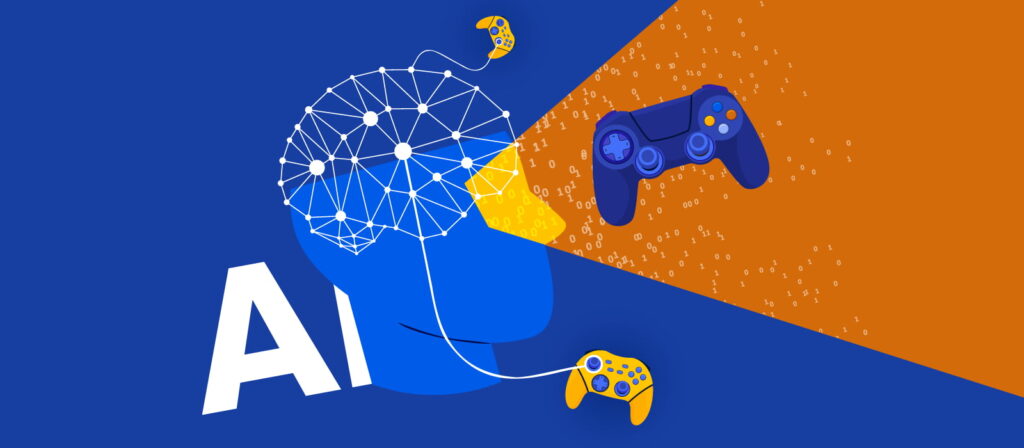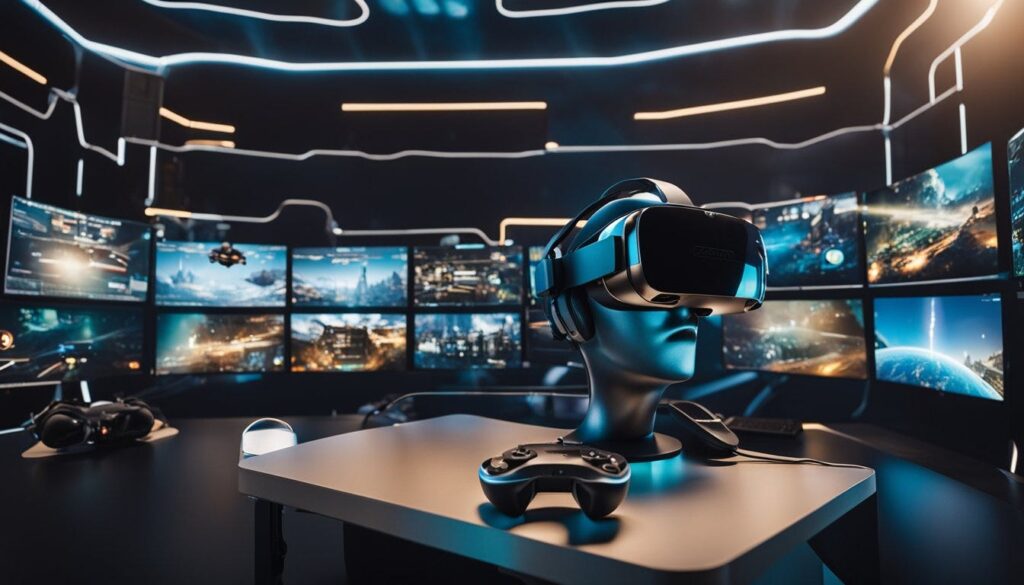Artificial Intelligence (AI) has become a cornerstone of technological advancement, influencing numerous industries, including video game development. From creating smarter non-player characters (NPCs) to personalizing player experiences, AI is reshaping how games are developed and played. This article explores the multifaceted role of AI in game development and its impact on enhancing player experience.
AI in Game Development
Procedural Content Generation: One of the most significant applications of AI in game development is procedural content generation (PCG). AI algorithms can generate vast and complex game worlds, levels, and environments dynamically, reducing the workload on human developers. Games like ‘No Man’s Sky’ and ‘Minecraft’ utilize PCG to create expansive and varied worlds that offer unique experiences for every player.
Automating Game Design Tasks: AI tools can assist developers in automating repetitive tasks, such as creating textures, animations, and sound effects. For instance, AI-driven software can generate realistic character animations based on motion capture data or even synthesize human-like voices for NPCs. This automation allows developers to focus on more creative aspects of game design.
Enhancing Game Testing: AI can also revolutionize the game testing process. Traditionally, game testing involves extensive manual testing to identify bugs and performance issues. AI-driven testing tools can simulate thousands of playthroughs to identify potential problems, optimize game performance, and ensure a smoother player experience. These tools can predict and replicate player behavior, leading to more comprehensive and efficient testing.
Read also about: The Influence of ‘Dark Souls’ on Modern Game Design.
AI in Enhancing Player Experience
Smarter NPCs and Opponents: AI enables the creation of more intelligent and adaptive NPCs that can react dynamically to player actions. This results in more engaging and challenging gameplay. For example, in ‘The Last of Us Part II’, NPCs exhibit complex behaviors, such as coordinating attacks, communicating with each other, and adapting to the player’s strategies, making encounters more realistic and immersive.
Personalized Gameplay: AI can analyze player behavior and preferences to offer personalized gaming experiences. This can include adjusting difficulty levels, suggesting in-game content, or customizing story paths based on player choices. Games like ‘Left 4 Dead’ use AI Director technology to dynamically adjust the game’s difficulty and pacing based on the player’s performance, ensuring a balanced and enjoyable experience.
Adaptive Storytelling: AI-driven narrative engines can create branching storylines that respond to player decisions, leading to a more immersive and personalized storytelling experience. Games like ‘Detroit: Become Human’ feature complex decision trees where player choices significantly impact the narrative, providing a unique experience for each playthrough.

The Future of AI in Gaming
AI-Driven Game Development: The future of AI in gaming includes more advanced AI-driven development tools that can assist in creating entire game worlds, narratives, and characters with minimal human intervention. These tools will empower indie developers and small studios to create high-quality games without the need for extensive resources.
AI and Virtual Reality: The integration of AI with virtual reality (VR) will enhance the immersion and interactivity of VR games. AI can create more responsive and lifelike virtual environments, where NPCs and objects react realistically to player actions, making VR experiences more convincing and engaging.
Ethical Considerations: As AI continues to evolve, ethical considerations will play a crucial role in its application in gaming. Issues such as data privacy, player manipulation, and the ethical treatment of AI-driven characters will need to be addressed to ensure that AI enhances player experience without compromising ethical standards.

Challenges and Opportunities
Balancing AI Complexity: One of the main challenges in implementing AI in games is balancing complexity with performance. Advanced AI algorithms can be resource-intensive, potentially affecting game performance. Developers must find ways to optimize AI to ensure it enhances gameplay without causing technical issues.
Opportunities for Innovation: AI offers numerous opportunities for innovation in game design and player experience. By leveraging AI, developers can create games that are more dynamic, personalized, and immersive. This potential for innovation will drive the gaming industry forward, offering players new and exciting experiences.
Conclusion
Artificial Intelligence is playing an increasingly important role in game development and enhancing player experience. From creating smarter NPCs and personalized gameplay to automating game design tasks and testing, AI is transforming how games are made and played. As AI technology continues to advance, it will open up new possibilities for innovation and creativity in the gaming industry, offering players richer and more immersive experiences. The future of gaming, powered by AI, promises to be an exciting journey for both developers and players alike.
